Category Archives for The Industry
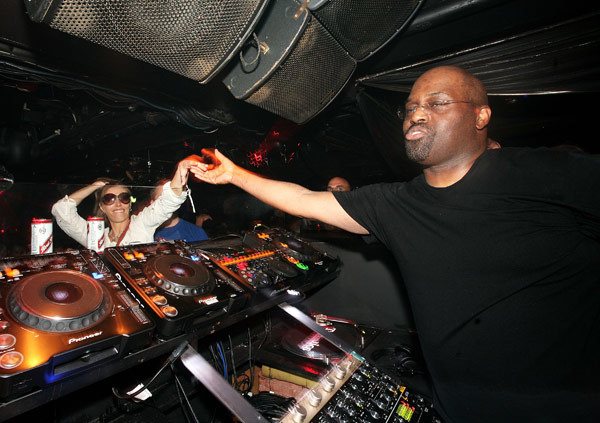
How to Be Great
It was a busy winter night several years ago at the club where I was a resident DJ. We had Andy Morris from Narcotic Thrust performing, and he was due to play in a few hours. Andy and I were chatting in the restaurant downstairs.
We were talking about music, DJing and what makes a DJ great. Andy picked up some caviar from his plate, took a sip of his champagne (yeah, this guy was living it up!) and said:
“What really makes a DJ great is his ability to surprise.”
A lot of time has passed since that day, but Andy’s words still ring in my ears. Because if you think about it, it’s exactly what separates a great DJ from a mediocre one: their ability to surprise the crowd.

Nerves: How to Combat Them?
I can still remember how nervous I was before my first couple of gigs. I mean, my hands were shaking! Your mileage may vary, but it’s definitely normal to feel some excitement before DJing in public. Here are a few tips on how to deal with the nerves.
Plan ahead. DJing is all about improvisation and interacting with the crowd, but you should come prepared. Have a clear picture of what kind of music you’ll be playing. Keep your “Record box” playlist handy where you’ll draw most of your tunes from.
Don’t dwell on it. Don’t think too much about the event or how you’ll do. Excessive dwelling on that kind of stuff will make you do worse. And completely throw the gig out of your head on day X. Go for a walk, play a video game, do something else.
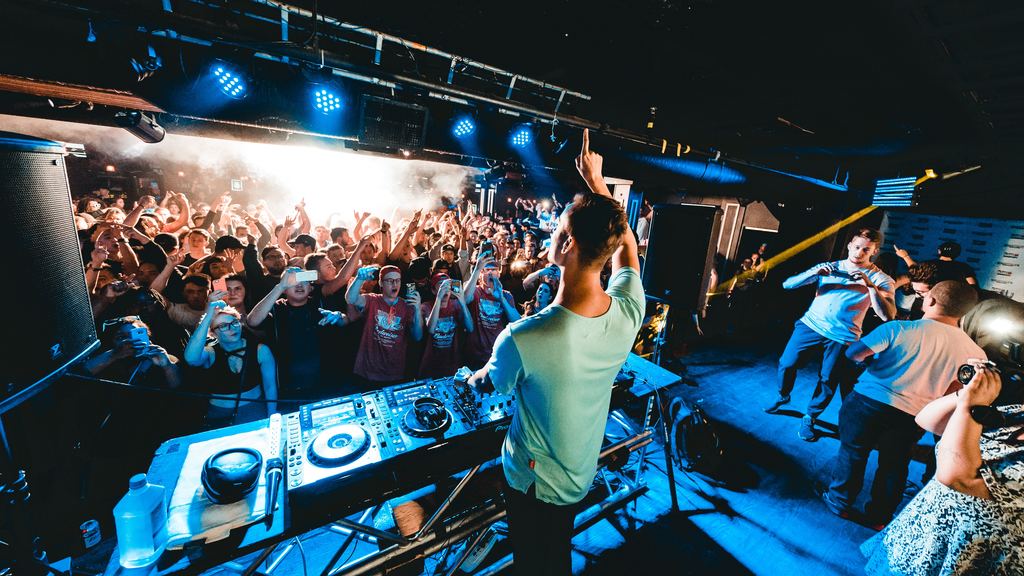
The Art of Announcing Yourself
When you come after another DJ, you can play it safe and simply mix out of their last tune. It’s OK, but if you’re reasonably confident of yourself, why not make people aware of your entrance? And no, I don’t mean jumping on the mic and shouting your name; announce yourself with music.
Here’s how.
Play a distinctive tune. Play a track that instantly reveals your style and tells the floor who’s behind the decks. Make the change in music tell them who’s in charge now. With this approach, it’s still all right to mix out of the previous DJ’s last tune, provided your music will do the talking.
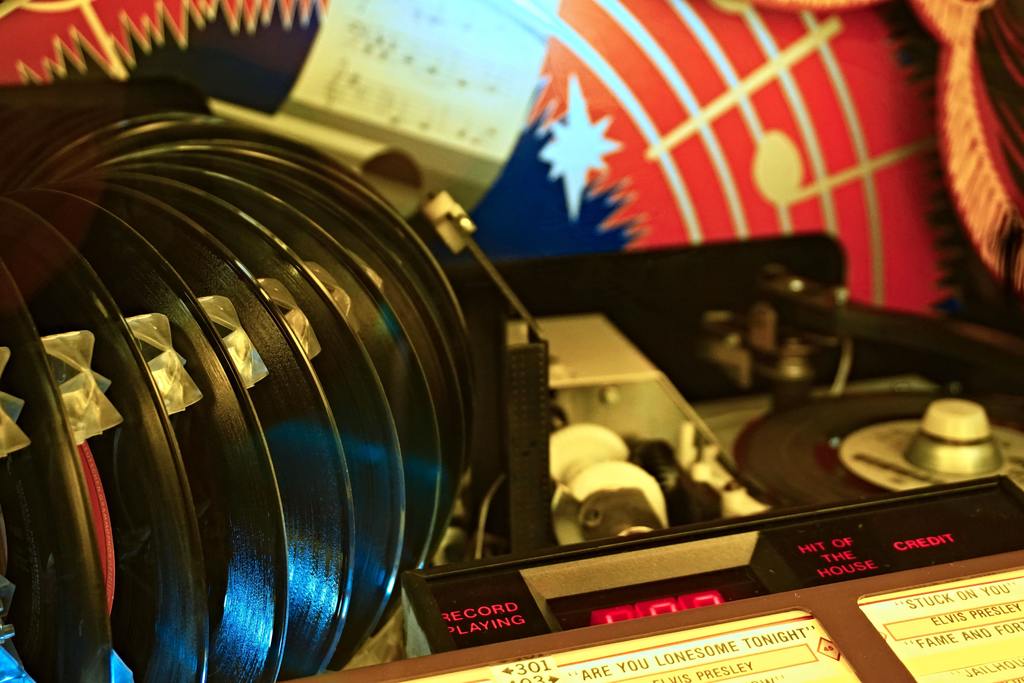
How to Handle Requests
If there is one thing guaranteed to happen during your DJ career, it’s that you are going to get requests. Those will range from perfectly sane ones to demanding to put on some Metallica during your trance set. Whatever the case, you need to be able to handle them.
Rule #1 is to be nice. Remember that you are paid to let these people have good time, and this one person actually took the trouble to come up and ask you for a particular tune.
Being nice doesn’t mean being submissive, however. If the request does make sense and may fit in into where you are taking your set anyway, then sure – say “All right, I’ll see what I can do” and then maybe do put it on after a few tunes… If you really feel it would work.
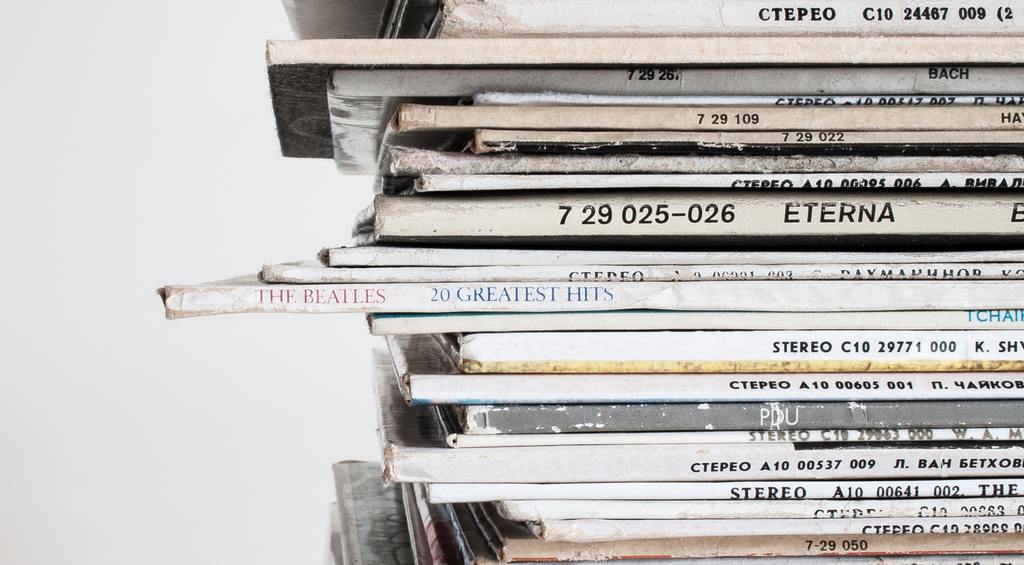
Should You Be Planning Your Sets?
If you are playing one of your first gigs in public or are otherwise outside your comfort zone, you may be tempted to plan your whole set in advance. I get it – performing live seems nerve-wrecking enough to be worrying about the tune to put on next. So should you do that?
Short answer: No, but there are different types of planning.
Long answer: As a DJ, you have to be ready to respond to the dancefloor. You never know what direction they might lead you in. By playing a pre-planned set, you may find yourself putting on records no one likes, unable to change your tune. This is where it becomes nerve-wrecking if you ask me.
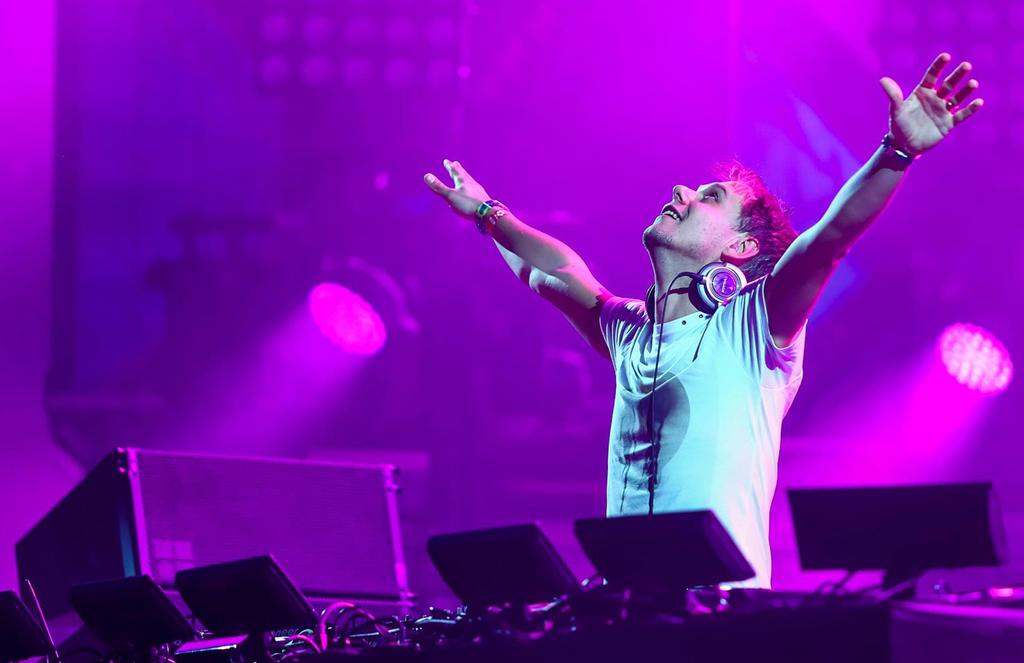
The Shortest Path to DJ Fame
So I meet this girl the other day, and the first question she asks is: “Wow, you’re a DJ, is it hard to make those tracks?” I patiently reply that I’m a DJ, not a producer and I “just” play other people’s music. And that’s true. But you know why this question inevitably comes up?
Because most people learn about DJs through the tracks they produce.
(Unconvinced? Just look at the latest DJ Mag’s Top 100 DJs list.)
Think about it. You’ve worked in your DJ residency for years. If you’re good, you developed a loyal following and even play a gig out of town now and then. Now contrast that to a fellow DJ who just got a popular track released. He’s on the radio, in people’s cars; other DJs play his music for their crowds.
He’s a quantum leap ahead of you.
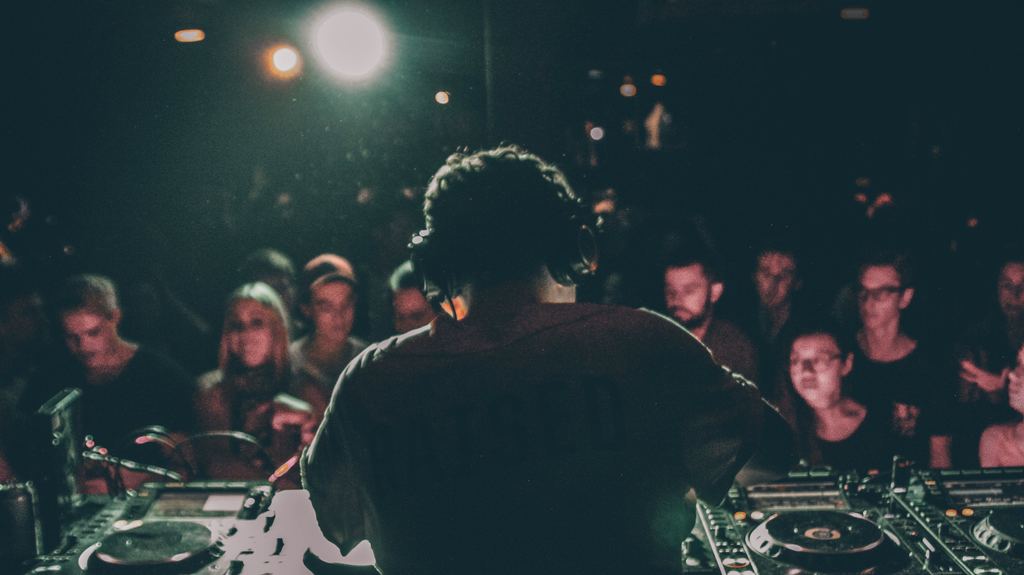
The #1 Secret to Getting Better Consistently
They say that to become a world-class pro at anything, you have to put in at least 10,000 hours of practicing. For a DJ, this means playing out whenever, wherever, as much as you can. In other words:
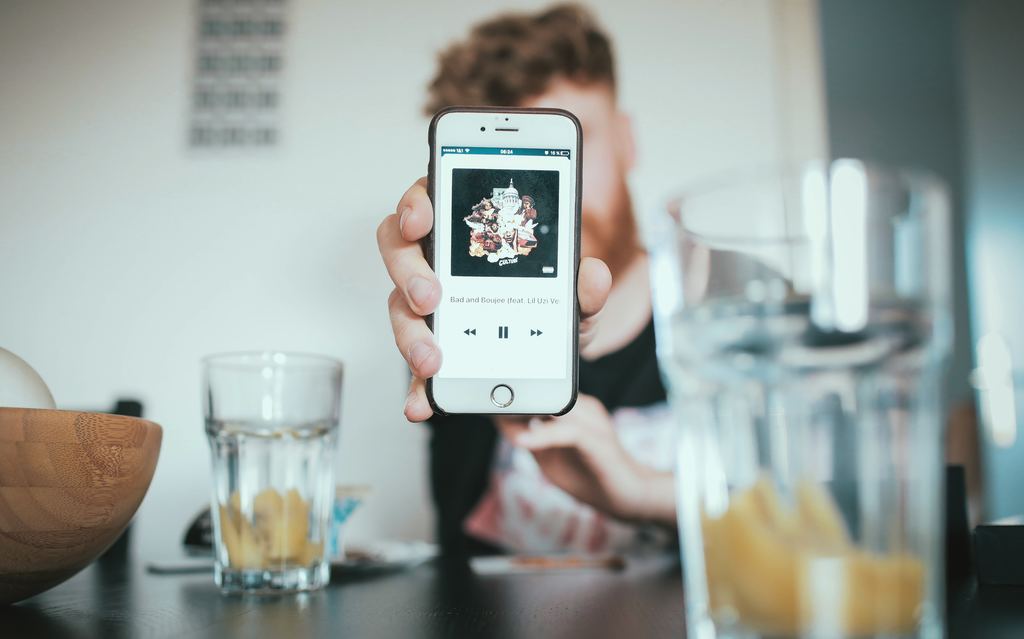
5 Tips on Discovering New Music to DJ With
Your job as a DJ is to always be on a lookout for new material. In a way, what you are paid for is doing the dirty work of picking great tracks for other people. So how do you go about finding new music to play?
Dance music stores. Brick and mortar record shops are a dying species these days, but if you have one if your town, make sure you drop by regularly. The staff can sometimes offer a good tip or two, and those vinyl crates in the back may house the gem you wouldn’t discover otherwise.
Radio. Rule #1 for a DJ is to always be listening to music. Radio – online and offline – is a perfect tool for that. Tip #1: Develop your musicianship by occasionally switching to a station you wouldn’t normally listen to, e.g. jazz or 70s music. Tip #2: Get Shazam on your phone to be able to identify that killer track, quickly.
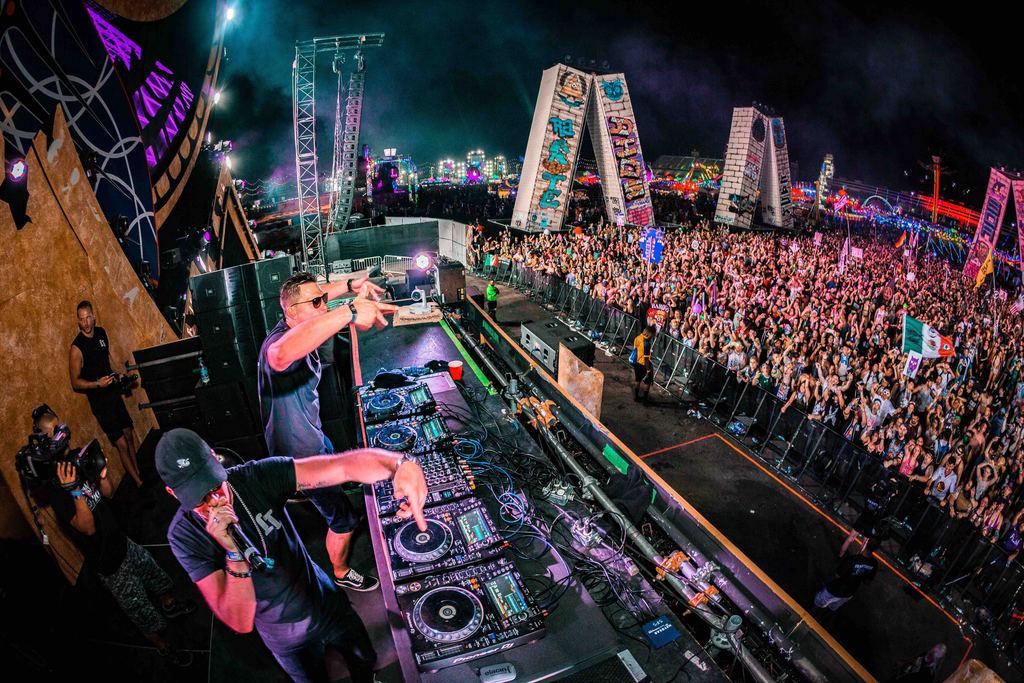
How (Not) to Piss off the Other DJ
DJing is not exactly a team sport but if you’re booked to play in a club or bar, you most probably won’t be the only DJ playing. So it’s important to play nice. Here are a few tips on how to avoid pissing off the other DJ and making them mad at you.
Start setting up after their final track is on. You don’t want to distract the other DJ with setting up your gear while they are playing. Leave it to their final track.
Let their last track play. It’s extremely rude to cut the previous DJ’s final track in the middle and not let it play at least close to its end. You show your respect by letting it play, and the other guy will appreciate that.
Don’t overshadow the DJ you’re opening for. If you’re warming up for another DJ, don’t play all the big tunes they are expected to play, especially if those are their tunes. Similarly, don’t turn the volume all the way up – leave them some space, too.
Can a Deaf Person DJ?
I’m sure you’ve seen the “It’s All Gone Pete Tong” movie about Frankie Wilde, a superstar DJ who goes completely deaf. (Go ahead and watch it if you didn’t.)
The movie is fiction, but here’s a kicker: A deaf DJ actually exists, and he’s pretty successful at that. Moreover, his last name is also Wilde. Check out the video above!
Now, if DJ Robbie Wilde did it, then you can, too.
Have you watched “It’s All Gone Pete Tong”? Do you think you’d be able to DJ deaf? Leave a reply in the comments section below.